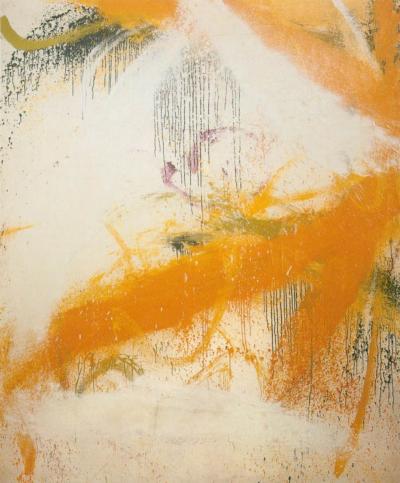- FINE ART
-
FURNITURE + LIGHTING
Shop By Category
Shop By Artist
- NEW + CUSTOM
- DECORATIVE ARTS
-
JEWELRY
Shop By Category
Shop By Artist
- INTERIORS
- MAGAZINE
Listing
Period
- Clear All
Norman Bluhm
American, 1920 - 1999
Norman Bluhm (1921-1999), an American artist, left an indelible mark on the world of abstraction by propelling it forward with a distinctive blend of figurative elements, eroticism, and calligraphic agility. His unique sensibility was shaped not merely by artistic movements, but by his extraordinary life story and profound respect for art history. Bluhm's ability to seamlessly integrate his artistic evolution while honoring the past set him apart as a stalwart steward of art's legacy.
Born in Chicago's South Side, Bluhm's early studies delved into the Bauhaus approach to architecture, coupled with a passion for flying. His life took a dramatic turn during World War II, where he served as a B-Pilot, completing 44 missions over North Africa and Europe before being wounded and sent home. Choosing to leave behind a potential career in architecture, Bluhm relocated to Paris after the war, attending classes at the Académie de la Grande Chaumiére and Ecole des Beaux Arts. In 1956, he returned to New York, embarking on a lifelong and successful journey as an Abstract Expressionist painter.
A key figure in the heyday of Abstract Expressionism, Bluhm was part of a vibrant movement, socializing with art-world luminaries and collaborating with curator and poet Frank O'Hara to create the renowned collection of "Poem Paintings." Despite enjoying substantial critical success during his lifetime and having his work featured in prestigious collections like the Metropolitan Museum of Art, the Whitney, and the Museum of Modern Art, Bluhm remained more committed to the act of painting itself than to fame or academic discussions about art.
His journey led him away from the bustling art scene in New York, eventually settling in the serene landscape of Rural Vermont. For Bluhm, the studio was the heart of the art universe, and whether in Paris, New York, or Vermont, he allowed the constant demands of the studio to guide him. Norman Bluhm passed away at his home in East Wallingford, Vermont, on February 3, 1999, leaving behind a legacy of artistic innovation and a profound dedication to the craft of painting.
Born in Chicago's South Side, Bluhm's early studies delved into the Bauhaus approach to architecture, coupled with a passion for flying. His life took a dramatic turn during World War II, where he served as a B-Pilot, completing 44 missions over North Africa and Europe before being wounded and sent home. Choosing to leave behind a potential career in architecture, Bluhm relocated to Paris after the war, attending classes at the Académie de la Grande Chaumiére and Ecole des Beaux Arts. In 1956, he returned to New York, embarking on a lifelong and successful journey as an Abstract Expressionist painter.
A key figure in the heyday of Abstract Expressionism, Bluhm was part of a vibrant movement, socializing with art-world luminaries and collaborating with curator and poet Frank O'Hara to create the renowned collection of "Poem Paintings." Despite enjoying substantial critical success during his lifetime and having his work featured in prestigious collections like the Metropolitan Museum of Art, the Whitney, and the Museum of Modern Art, Bluhm remained more committed to the act of painting itself than to fame or academic discussions about art.
His journey led him away from the bustling art scene in New York, eventually settling in the serene landscape of Rural Vermont. For Bluhm, the studio was the heart of the art universe, and whether in Paris, New York, or Vermont, he allowed the constant demands of the studio to guide him. Norman Bluhm passed away at his home in East Wallingford, Vermont, on February 3, 1999, leaving behind a legacy of artistic innovation and a profound dedication to the craft of painting.
